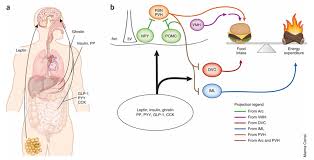As dengue cases rise worldwide, a groundbreaking study led by researchers at the La Jolla Institute for Immunology (LJI) offers new hope in the fight against the virus. The research, recently published in JCI Insight, highlights the role of T cells in providing immunity against dengue, particularly in children who have experienced multiple infections.
Building Immunity Through Repeated Exposure
Dengue virus infects up to 400 million people annually, yet there are currently no approved therapies and limited vaccine options. However, the latest study suggests that children who contract the virus more than once develop a stronger T cell response, making them more resistant to severe symptoms in subsequent infections.
“We saw a significant T cell response in children who had been infected more than once before,” says study leader Daniela Weiskopf, Ph.D., Assistant Professor at LJI. The findings indicate that these dengue-specific T cells play a crucial role in mitigating the disease’s severity.
The Expanding Threat of Dengue
The study comes at a critical time, as dengue-carrying mosquitoes continue to spread into new regions. In California, health officials reported the state’s first locally acquired dengue virus case in 2023. Since then, Los Angeles County has recorded 12 additional cases, and San Diego County has confirmed two cases.
“Dengue virus is expanding into areas where the majority of people have never seen the virus before. That will change the game,” warns Weiskopf, who is also a member of LJI’s Center for Vaccine Innovation.
Understanding the Role of T Cells
T cells are a crucial part of the immune system’s response to infections. A weak T cell response can make it difficult to fight the virus, while an overactive response can cause harmful inflammation. The researchers studied 71 children in Managua, Nicaragua, where dengue is endemic, to better understand this immune response.
Through blood tests and antibody tracking, the study revealed that children with two or more prior dengue infections were significantly less likely to develop severe symptoms upon reinfection. In contrast, those who had only been infected once were more prone to clinical symptoms when re-exposed to the virus.
Towards a More Effective Vaccine
The study’s findings may explain the mixed success of the dengue vaccine Dengvaxia, which was only effective for children who had already been exposed to the virus. The new research suggests that an effective vaccine should aim to stimulate a robust T cell response similar to that seen in children with repeated natural infections.
“There’s a lot more work to be done, but these findings could help shape the future of dengue vaccination strategies,” Weiskopf notes.
Conclusion
As dengue cases rise and the virus spreads to new regions, understanding how T cells contribute to immunity is a significant step forward. Researchers hope that these insights will aid in developing a vaccine capable of providing long-term protection against dengue virus.
Disclaimer: This article is based on current research findings and is for informational purposes only. It is not intended to replace professional medical advice, diagnosis, or treatment. Readers should consult healthcare professionals for medical concerns related to dengue virus.












